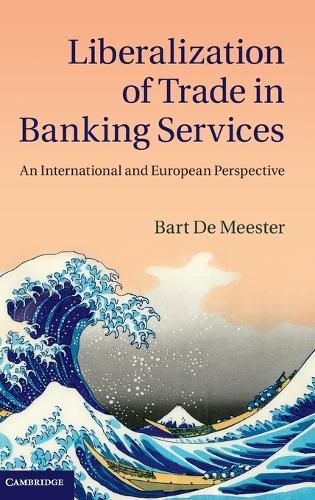Overview
The financial crisis struck with full force in the autumn of 2008. Very soon after the start of the crisis, culprits were sought. An important recurring argument was that liberalization of trade in banking services, as pursued at the European (within the EU) and international level (in the WTO), had seriously reduced the possibilities for governments to regulate and supervise the banking sector. This book examines the validity of this claim and considers how EU law and WTO law deal with the trade-off any policy-maker must make between stability and efficiency in the market for banking services. The book considers specifically the interaction between EU and WTO law because the EU is itself a Member of the WTO, next to its Member States. This implies that the EU must respect the obligations it undertook in the framework of the WTO when the EU determines its policy towards third-country banks.
Full Product Details
Author: Bart De Meester
Publisher: Cambridge University Press
Imprint: Cambridge University Press
Dimensions:
Width: 15.80cm
, Height: 2.50cm
, Length: 23.50cm
Weight: 0.700kg
ISBN: 9781107038493
ISBN 10: 1107038499
Pages: 407
Publication Date: 10 July 2014
Audience:
Professional and scholarly
,
Professional and scholarly
,
Professional & Vocational
,
Professional & Vocational
Format: Hardback
Publisher's Status: Active
Availability: Manufactured on demand

We will order this item for you from a manufactured on demand supplier.
Reviews
'... the author has undoubtedly set an extremely high standard for future contributions in this field. Liberalisation of Trade in Banking Services provides a complete and exceptional analysis of the complex issues and challenges that have arisen as a result of trade liberalization at both EU and international level, especially in the light of the most costly financial displacement of financial history after Great Depression ... the book offers an insightful analysis as well as practical policy remedies that deliver a two-dimensional and comprehensive understanding of the legal implications of free trade in financial services at both EU and international level.' Pamela Nika, Yearbook of European Law ... the author has undoubtedly set an extremely high standard for future contributions in this field. Liberalisation of Trade in Banking Services provides a complete and exceptional analysis of the complex issues and challenges that have arisen as a result of trade liberalization at both EU and international level, especially in the light of the most costly financial displacement of financial history after Great Depression ... the book offers an insightful analysis as well as practical policy remedies that deliver a two-dimensional and comprehensive understanding of the legal implications of free trade in financial services at both EU and international level. Pamela Nika, Yearbook of European Law
'... the author has undoubtedly set an extremely high standard for future contributions in this field. Liberalisation of Trade in Banking Services provides a complete and exceptional analysis of the complex issues and challenges that have arisen as a result of trade liberalization at both EU and international level, especially in the light of the most costly financial displacement of financial history after Great Depression ... the book offers an insightful analysis as well as practical policy remedies that deliver a two-dimensional and comprehensive understanding of the legal implications of free trade in financial services at both EU and international level.' Pamela Nika, Yearbook of European Law
Author Information
Bart De Meester is Member of the Legal Service of the European Commission. He previously worked as an Associate at the Geneva office of Sidley Austin LLP and, prior to that, as a Legal Affairs Officer at the Trade in Services Division of the Word Trade Organization. He is also Associate Fellow of the Leuven Centre for Global Governance Studies at the University of Leuven, Belgium.




